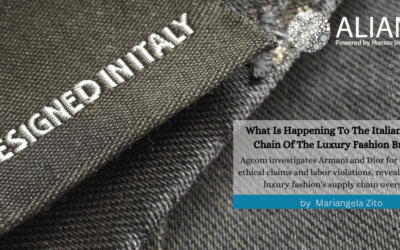When we talk about asset protection, we are referring to all the legal strategies and smart financial planning to shield wealth from potential threats like lawsuits, creditors, government agencies, or volatile economic scenarios. Lawsuits are common and financial markets are unpredictable, so being aware of what to do to protect your assets is no longer just a good idea, it’s essential. Asset protection is a key tool you can use to make sure your wealth stays safe no matter what challenges or changes are present in today’s world.
This article highlights the best international jurisdictions for asset protection in 2024. We look at each jurisdiction’s legal system (focusing on debtor-creditor and trust laws), financial services (availability of bank and investment accounts and associated privacy), tax implications and potential risks. Understanding all of these factors can help individuals and businesses make informed and smarter decisions on how they can protect their assets, looking beyond domestic solutions and exploring international jurisdictions with stronger and more beneficial protection.
Top countries for international asset protection in 2024
Each country has its own legal system, institutions, and legal processes. Every country has unique approaches to law, with some using the common law system familiar to our U.S. clients, and others have a strict civil (code) system. It’s not surprising that there is a wide range of options for asset protection around the globe. Some jurisdictions are known for their robust legal framework on wealth protection. In the following sections, we will highlight the top jurisdictions globally renowned for their asset protection laws and analyze the strengths of each. It’s important to note that not every location would be suitable for every person or business. Here, you will find valuable information to help you decide which one is the best fit for you.
As a general note, over the past fifteen years it has been getting increasingly difficult to set up bank accounts for any client anywhere in the world. Banks have been under ever increasing pressure from the OECD and their own governments to engage in enhanced tax compliance and due diligence, focusing on anti-money laundering and know-your-client (KYC) protocols. Many banks across the world have stopped accepting U.S. clients. It is not uncommon nowadays to have to provide to the bank full explanations of the client’s business, sometimes including a business plan, audited financial statements, notarized personal documents, and reference letters.
Strangely, the United States remains as the world’s true banking secrecy haven. It is one of the only countries that does not share banking information with the tax agencies of other countries (absent a specific agreement to that effect).
Switzerland: No Longer Focused on Banking Secrecy
Switzerland, because of its long-running neutrality, has been a haven for wealth for several centuries. Switzerland is associated with a strong legal and political system, a vibrant financial services industry and was historically associated with banking secrecy.
It used to take a couple of days to set up a bank account for most any client with most any private bank in Switzerland. Today, it will take weeks at best, and if our client is a U.S. resident, only a small handful of banks will accept them. Because of the additional cost of compliance associated with U.S.-based customers, the few banks that accept U.S. clients have much higher account minimums.
Switzerland is also no longer the secrecy bulwark it used to be. Swiss banks will readily share client information with the world’s tax agencies.
In our experience Switzerland is a safe country for our clients to keep their wealth in, but it is no longer top of our list. It is just too difficult to bank in Switzerland, they will accept few clients, and the Swiss banks tend to build in a lot of fees, which makes banking there expensive. Given the significantly reduced level of secrecy, we rarely recommend Switzerland to our clients.
Other than financial security and former banking secrecy, Switzerland has never been known as an asset protection jurisdiction. There are no special laws on the books that afford debtors a better level of protection through the use of trusts, or by making it more difficult for a creditor to pursue collection efforts.
Switzerland is also likely to recognize foreign money judgment, allowing creditors to enforce against Swiss-based assets.
We would group both Lichtenstein and Luxemburg in the same category as Switzerland.
Because none of these countries allow for the use of protective local structures, even if money is placed here, a legal structure (trust, foundation, legal entity, etc) will still need to be established to own the financial account.
Singapore: Asia’s Secure Financial Hub
Singapore is known for having one of the more robust legal systems in Asia, as well as political stability and a friendly business environment.
The legal system in Singapore is entirely based on the English common law, making it familiar to our U.S. clients. There is a well-developed body of trust law, but no provisions specific to asset protection. U.S. judgments are enforceable in Singapore.
Similar to Switzerland, U.S. clients have a difficult time finding a bank willing to accept them as clients. Because of the scarcity of banks for U.S. clients and because financial institutions in Singapore cater primarily to affluent clients, account minimums, as well as setup and maintenance costs can be high.
In terms of taxes, Singapore offers a competitive tax environment as part of its dynamic business landscape. We use Singapore primarily as an offshore business jurisdiction for our clients, and not an asset protection jurisdiction.
Cook Islands: Offshore Shield, Remote Safety
The country of Cook Islands in the South Pacific region of Oceania is renowned for its exquisite beaches and pristine waters. It is also known for having some of the most robust asset protection laws globally.
The Cooks use the English common law, but with significant enhancements focused on asset protection. The present-day laws governing debt collection and irrevocable trusts were drafted with the assistance of a U.S. asset protection attorney and heavily favor debtors. Cook Islands allows creditors a shortened period of time to argue that the funding of a Cooks’ trust is a fraudulent transfer (either one or two years, depending on circumstances) and requires the proof of the intent to defraud a creditor beyond a reasonable doubt (which is likely impossible without an outright admission of guilt).
The trust laws of the Cook Islands built in additional protections, including precluding the enforceability of a foreign judgment against the assets of a Cook Islands trust.
The Cooks are not known for having a robust financial services industry and are rarely used by clients for banking. Often a Cook Islands trust will be paired with a bank or investment account in a different jurisdiction.
We believe that the Cooks are a very good jurisdiction for an offshore asset protection trust. The downside of the Cooks is their notoriety as an asset protection haven, which in some cases we may want to avoid.
Saint Vincent and the Grenadines: Caribbean Privacy and Protection
We like to think of Saint Vincent as Cook Islands 2.0. Saint Vincent adopted its revised trust laws a lot later than the Cook Islands and had the benefit of using the trust laws of the Cook Islands as its starting point. These laws have been enhanced and improved and we are not familiar with any offshore jurisdiction which offers better trust law for asset protection.
Saint Vincent also flies below the radar and does not have the notoriety of the Cook Islands. We have a strong preference for using Saint Vincent for offshore asset protection trusts.
The Rest
There are many other jurisdictions that we can and sometimes consider and use for international asset protection. We may use Dubai, Cyprus and Hungary for banking and investment management. We may use Nevis, the BVI or Hong Kong for legal entities. Each client’s situation is unique and there is rarely a cookie-cutter approach.
Choosing the right jurisdiction for asset protection depends on your unique financial situation, objectives, and the specific threats you may face. For those who prioritize confidentiality and have significant assets, Hungary may be an unusual but ideal choice. The Hungarian asset management foundation (a type of private non-charitable foundation) allows for a great deal of privacy and asset protection. Saint Vincent, Cooks and Nevis are cost effective. Switzerland and Singapore offer financial peace of mind.
Over the past 20+ years we have established hundreds of offshore structures. We learned that knowing the laws, financial frameworks and legal systems is mandatory, but it is only a starting point. So many successful offshore structures are relationship based. Knowing the right trust company or the right investment manager can elevate an already great asset protection structure to an even higher level.
Ready to take the next step in securing your assets?
With over 2 decades of experience in international asset protection, we have the expertise to tailor the best solutions for your unique needs. Don’t leave your wealth unprotected—contact us today at +1 818-933-3838 to get started.
FOLLOW US ON LINKEDIN
SEE MORE ALIANT INSIGHTS



